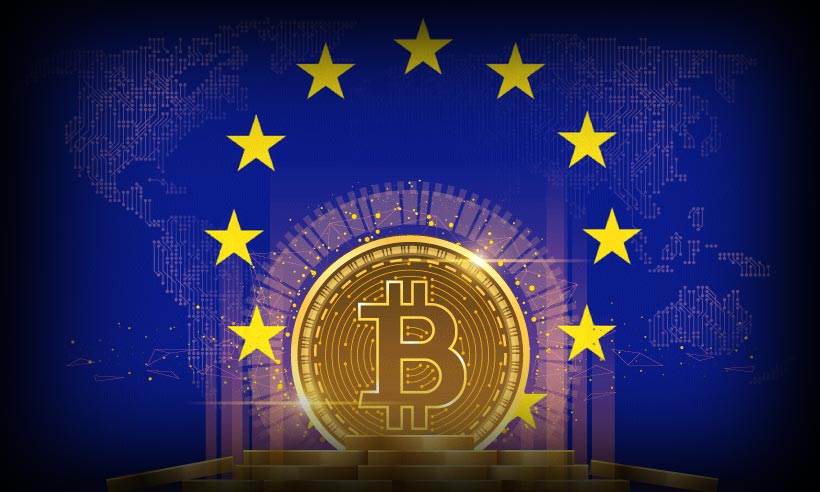
If you’re reading this, you’ve undoubtedly heard of bitcoin, as have hundreds of millions of other people. You may have heard recently that a single bitcoin is worth tens of thousands of dollars. You could possibly be one of the millions of individuals with active bitcoin wallets in 2022. There is a good chance that you are familiar with the internet, whether or not you belong to one of the aforementioned categories. Few things in human history have altered our way of life as drastically as the internet. The internet is one of humanity’s greatest achievements, whether in communications, entertainment, business, or even international relations. While bitcoin is undoubtedly gaining popularity, could it possibly exceed the internet in terms of growth? How Quickly Is Bitcoin Growing? Last year, an on-chain analyst named Willy Woo unveiled a set of tweets that got the crypto community buzzing. The tweets included a graph depicting the history of bitcoin use, as well as estimates for the next several years. According to the graph, there were 135 million active bitcoin addresses, which is the same number of individuals using the internet in 1997. However, bitcoin use has grown rapidly in recent years, and analysts predict that if it continues to develop at this rate, it will have a billion users by 2025. In comparison, the internet did not reach a billion users until 2005, eight years after it reached 135 million. A billion bitcoin users is an audacious ambition, but is it one that can be achieved? First, the billion-user target must be specified more clearly. If a billion users mean a billion active wallet addresses, it is doable; however, the amount of bitcoin in each wallet will be minimal. It should be remembered that bitcoins are not infinite. There will only ever be 21 million bitcoins in existence at any given moment. As of May 2022, there are roughly less than 2 million bitcoins left to mine, and demand for bitcoin is more than ever before, thanks to its all-time highs and increasing media attention. If the remaining bitcoin were distributed equitably, each wallet would have a very small fraction of a bitcoin. Can Bitcoin Grow Fast Enough? Bitcoin’s ability to reach a billion wallet addresses, particularly in the next three years, is dependent on institutional backing. In the case of the internet, its rise was aided mostly by necessity rather than organic growth. By the turn of the century, nearly every aspect of life was linked to the internet; companies began interacting via email, major announcements were posted on official websites, and email addresses became essential for accessing certain services. Simply said, it has become nearly impossible to function in modern life without access to the internet. While many people used the internet because they liked it, institutional backing drove its rise. Unfortunately, Bitcoin does not currently have that degree of support (even though, over the past few years, several major corporations have stepped in). As of now, most people set up bitcoin or cryptocurrency wallets with the intention of profiting from the market or because they believe in the concept of decentralized currency. This, however, is just a minor portion of the global populous. And although one may argue that decentralized currencies have the capacity to redefine the world in the same way that the internet has, a billion individuals are unlikely to feel the same amount of compulsion. There’s a good reason why email addresses outnumber Facebook profiles: the former has been rendered mandatory, whilst the latter, despite its widespread use, has not. The same is true for bitcoin; if institutional support improves to the point where bitcoin is a payment option for most day-to-day purchases, is almost universally accepted, and is firmly established in modern society, bitcoin has the potential to outperform the internet in terms of growth. It’s not a matter of how but when.
The post Can Bitcoin Outperform the Internet in Growth? appeared first on Cryptoknowmics-Crypto News and Media Platform.
- Coinsmart. Europe’s Best Bitcoin and Crypto Exchange.
- Platoblockchain. Web3 Metaverse Intelligence. Knowledge Amplified. FREE ACCESS.
- CryptoHawk. Altcoin Radar. Free Trial.
- Source: https://www.cryptoknowmics.com/news/can-bitcoin-outperform-the-internet-in-growth/?utm_source=rss&utm_medium=rss&utm_campaign=can-bitcoin-outperform-the-internet-in-growth
- "
- 2022
- access
- accessing
- According
- achieved
- active
- addresses
- Although
- amount
- analyst
- Announcements
- attention
- become
- before
- began
- Billion
- Bitcoin
- bitcoin wallets
- Block
- business
- Buzzing
- Capacity
- certain
- Communications
- community
- Companies
- concept
- continues
- Corporations
- could
- crypto
- cryptocurrency
- currencies
- Currency
- Currently
- decentralized
- Demand
- Despite
- develop
- DID
- Display
- distributed
- dollars
- Entertainment
- essential
- established
- estimates
- FAST
- First
- function
- gaining
- Global
- good
- greatest
- Grow
- Growing
- Growth
- heard
- history
- How
- However
- HTTPS
- human
- Hundreds
- impossible
- included
- increasing
- Institutional
- Intention
- International
- Internet
- IT
- major
- Market
- Matter
- Media
- million
- millions
- more
- most
- news
- number
- official
- On-Chain
- Option
- Other
- particularly
- payment
- People
- Point
- popularity
- potential
- predict
- Profiles
- purchases
- quickly
- reach
- Reading
- recently
- relations
- remaining
- Said
- Services
- set
- small
- Society
- support
- Target
- the world
- thousands
- use
- users
- Wallet
- Wallets
- websites
- whether
- while
- Whilst
- widespread
- without
- world
- worth
- would
- year
- years










